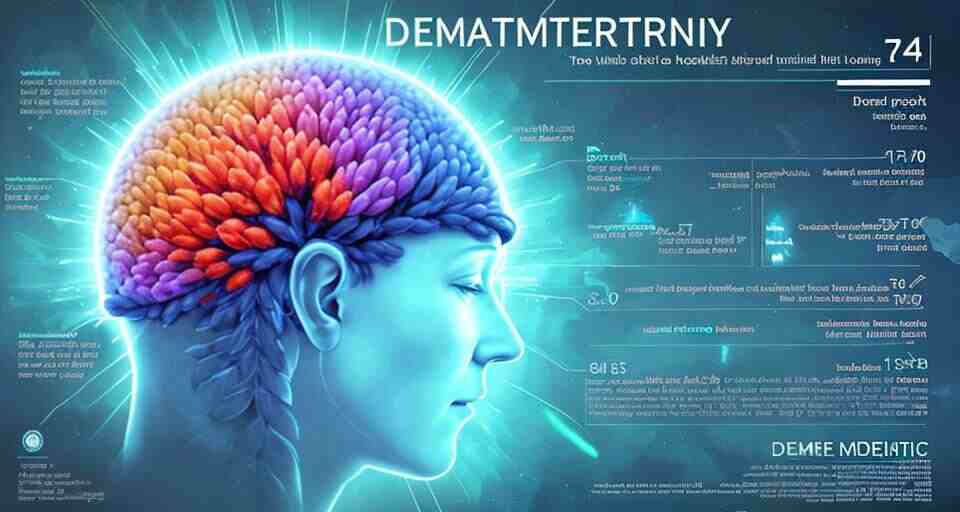Risk of Dementia
Making your me-time joyful as well as advantageous for health absolutely sounds astonishing. Astonishing yet factual – a health disorder can be treated by using the internet. We have been hearing that using the internet is unhealthy both for our physical and mental health. One can easily find a plethora of evidence-based research on the demerits of the internet on health.

Risk of Dementia by Internet Usage
Although it is true to a high degree that using the internet diverts your cognition as well as makes you lethargic, it is still beneficial in another direction. However, it’s proven contrary now. According to recent research, using the internet for a limited time is good for the mental health of older adults. This new study astonished everyone that using the regular internet lowers the risk of developing dementia.
Damage of Brain Cells
Dementia refers to the loss of cognitive functioning. Damage to brain cells causes dementia, due to which, brain cells cannot communicate with each other for proper brain functioning. This cognitive impairment commonly encompasses a loss of language, memory, problem-solving skills, and other cognitive skills. Other than Alzheimer’s, the cognitive impairments that lead to dementia include depression, drug side effects, infections, metabolic abnormalities, and small strokes to the brain. Looking through another perspective, it is pretty clear that memory impairment is a normal part of aging that must not be conflated with dementia.
Disturbing Ability to Think
Losing cognitive abilities including the ability to think, remember, and reason definitely intervenes in a person’s everyday life. As a result of dementia, some people may lose control of their emotions which causes disturbance in their lives. It usually affects older adults.
Dementia actually has no cure, yet its risk can be reduced via different approaches and one such approach is using the internet. Risk factors cannot be changed but healthy behaviors can be adopted. Scientists have come up with a consensus stating that the risk of cognitive decline can be minimized by using the Internet.
Improving Mental Health
There is a link between using the internet and improving mental health. Spending time online helps the person develop and maintain the cognitive reserve that resultantly reduces the risk of dementia. Internet-using regularity is associated with cognitive longevity. Online searching makes your brain involved in a cognitive exercise that will ensure the protection of neuronal health. This cognitive exercise helps people with dementia lower the risk yet remaining online for excessive time still has adverse effects.
Spending Time on Social Media
As a matter of fact, being online and spending time on social media makes one keep things in mind because of catching sight of almost the same stuff again and again. When the stimulus we are stimulated to appears many times, we even unwantedly grab it to respond. Likewise, older adults with the condition of dementia when once attracted to it, their attraction increases which itself induces cognitive functioning.
Interaction with Others
Connecting with others allows you to stay connected mentally too. Moreover, older adults are more likely to live in isolation, having less interaction with others. Loneliness also raises the risk of dementia and such alone people are exposed to loneliness meaning that they are exposed to dementia. Interaction with others regularly prevents you from developing dementia.
Spending time on the internet just needs mental activity and not physical activity and mental activity is the dominant requirement for dealing with dementia. Your activity in social life brightens your mood and releases tension, offering you mental peace. Moreover, being socially active reduces depression and social isolation. Mental stimulation, social engagement, and stress management help prevent the condition and risk of dementia. And this all can be attained by spending time on the internet.
Proper Sleep
Getting proper sleep; having physical activity; taking a properly prescribed medication; avoiding alcohol, processed meats and smoking also reduces the risk of dementia. Reading, solving puzzles, taking classes, traveling, etc. are the other mentally stimulating activities that help lower the risk of dementia.
Engaging your brain in strong social ties is very crucial for your brain health. Socializing is one of the best ways to stimulate your memory and attention. It helps you strengthen your neural networks which ultimately results in lowering the risk of dementia. Just scrolling through apps makes you use your cognitive skills and it’s enough to boost your mental activity.
Groups Comparison
Studies have proved it too by making a comparison between the two groups; one uses the internet and the other does not, it’s gauged that the group that uses the internet is less exposed to cognitive decline. It has been scientifically proven that people with strong social ties experience less cognitive decline.
Does not matter what people explore on the internet whether it’s any social media app or any search, it keeps their minds engaged, fostering their thinking and responding capability. Any search in the form of text, audio, video, or just simply an image – all the stuff is intellectually stimulating. Intellectual stimulation is associated with dementia.
Lesser the Risk of Dementia
The more the intellectual stimulation, the lesser the risk of dementia. People with the condition of dementia have trouble having normal routine brain functions. Older adults usually have Alzheimer’s disease which is actually the most common type of dementia. The Internet is declared a helpful source for people with dementia since they can learn any skills or get information through this source and the gained knowledge triggers them to activate cognitive processes that ultimately yet gradually lower the risk of dementia enabling people to get back to normalcy.
Read More featured articles on Internet Chicks, the online community continues to expand with creative new voices.





